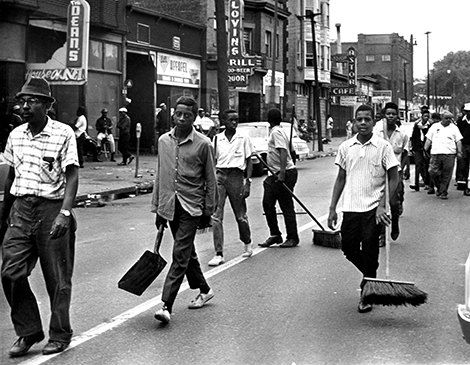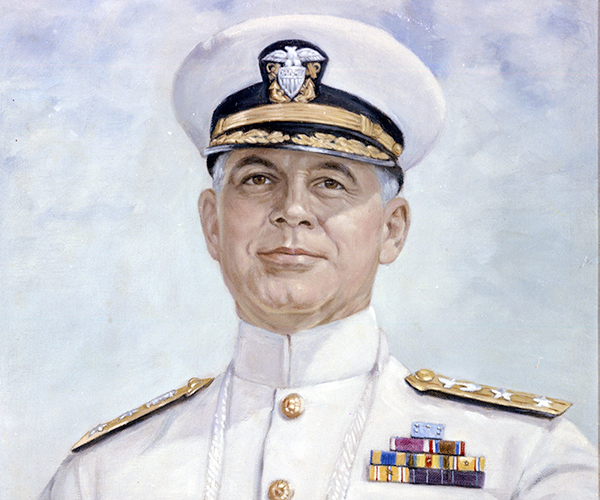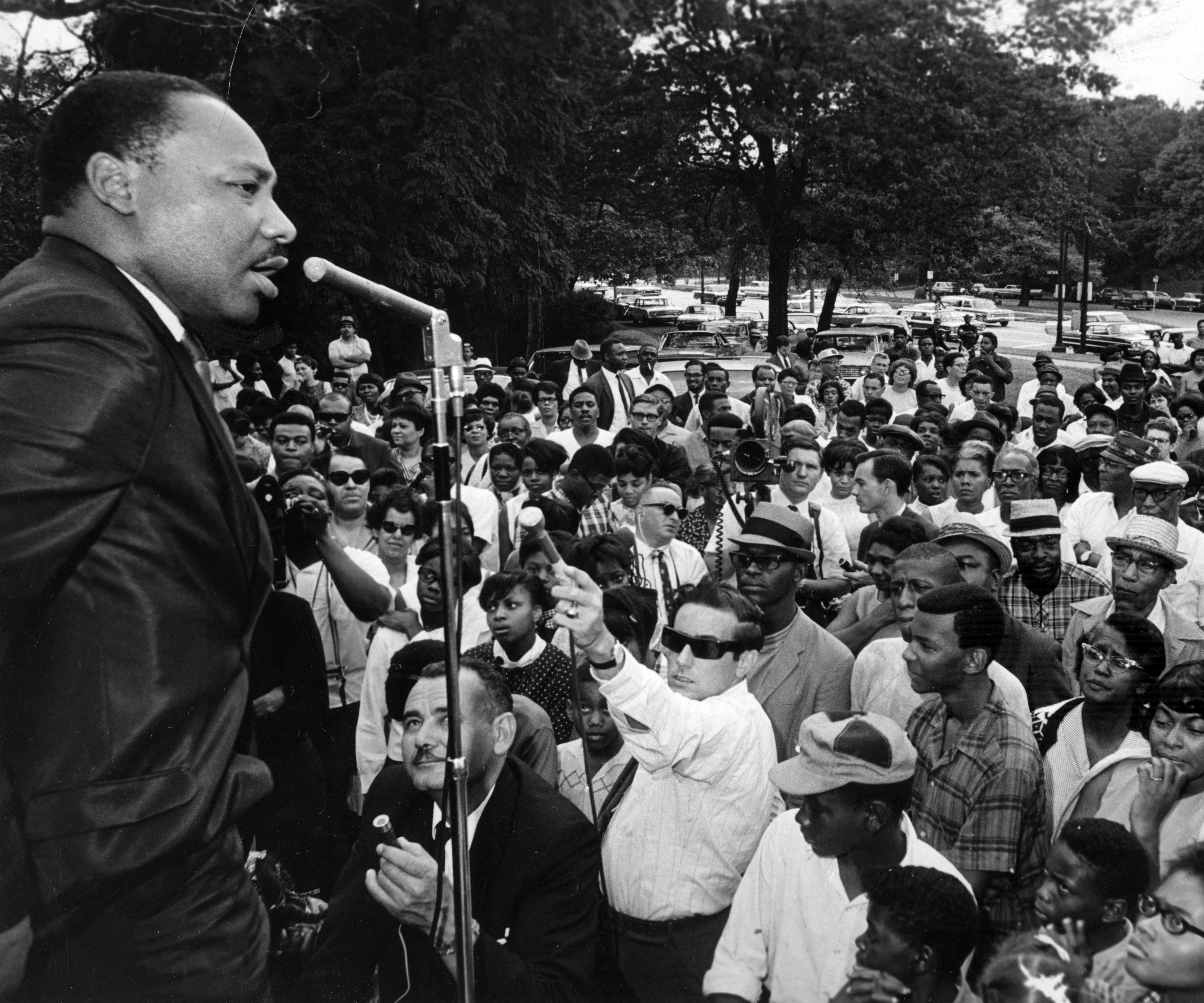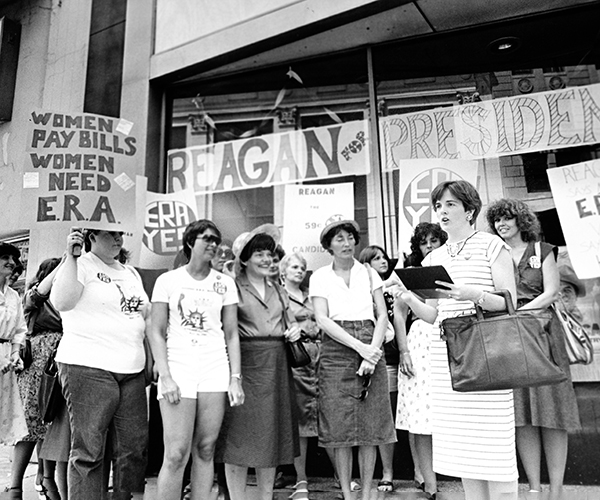The summer of 1966 was a summer of unrest in the Hough neighborhood. While Hough had been a powder keg of racial tension and inequality since the 1950s, the breaking point came in the form of a nearly weeklong riot that July.
On July 18, 1966, a white bar owner at Seventy-Niners Cafe on Hough Avenue and East 79th Street denied a glass of water to a Black patron, prompting a protest to take place in front of the bar. The chaos quickly spread throughout the neighborhood, with police unable to stop the growing crowd. After the crowd grew overnight, Mayor Ralph Locher called in the National Guard the morning of July 20, bringing 1,700 Guardsmen into the city to stop the riots.
While the peak of the disorder came on the first night, pockets of unrest popped up throughout the neighborhood for the rest of the week before a torrential downpour hit July 24, cooling down Hough. During the riots, Hough residents banded together to clean up the debris from the previous night. Efforts continued even after the turmoil ended, as residents banded together to buy community tools that were shared throughout the cleanup efforts.
In the days after, a grand jury investigation blamed the riots on outside agitators, a finding that was disputed and later disproved by the Cleveland Urban League.
Through its own investigation, the Urban League found the riots were a result of discrimination against Cleveland’s Black residents by police and white business owners along with poor housing options and inadequate efforts to improve the community.




